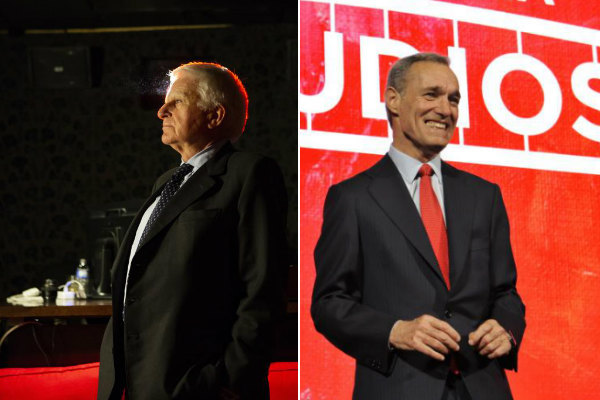The CNMC will fine Mediaset and Atresmedia after investigating in both audiovisual groups "restrictive practices of competition", a substantial sanction that, beyond the economic impact, will have important consequences in the television advertising market.
The amount to be paid would be around 4% of the annual income of the operators, so each of these companies would have to disburse around 36 million euros .
The calculations that were raised in recent weeks in the regulator were around 4.5% of annual income, which meant a higher amount of about 43 million. Within the National Competition Market Commission (CNMC), this sanction has been on the table for weeks, although it has been difficult to reach an agreement, since unanimity was pursued and at least two directors had expressed their doubts about it . Yesterday, the resolution passed through the competition hall, after having left the regulation room, so that the fine is expected to be announced today, as confirmed by EL MUNDO different sources in the sector.
The CNMC has studied whether these companies would have demanded from advertisers and media agencies the fulfillment of minimum advertising investment quotas, and also if they have carried out contracts in different channels through the packaged sale, the so-called single guideline. The conclusion of the investigation is inclined to determine that there was an abuse of the position to prevent the normal development of competition on television.
Radio Blanca (Kiss) and the Spanish Association of Digital Terrestrial Private Televisions appeared in that file opened ex officio by the great Spanish supervisor. Mediaset and Atresmedia announced that they would take the case to the National Court, but at the same time they established talks with the CNMC to explore a possible understanding: that conventional termination process, as the term is called, resulted in CNMC's rejection of Operators' commitments, last May. Sources of the chains consider that their commitments were greater than those that the CNMC will be able to demand through this sanction.
The file took its course. In the new season, already with several members of the supervisor with their expired mandate (including the president, José María Marín Quemada), the sanction loomed over Mediaset (a company that controls Telecinco y Cuatro) and Atresmedia (Antena 3 and La Sexta), but week after week the CNMC delayed the process and postponed its decision, waiting to reach unanimity. Finally, it has materialized, although the hardness of the fine, unpublished for its category of "serious" , has been reduced from the first of the approaches, 5% that raised the blow to about 50 million euros to pay for each operator; hence, it fell to 4.5%, although finally the figure remains at the mentioned 4%.
The "animadversion" of Marín Quemada
Mediaset has already announced the "immediate challenge" of any sanction. From that group they have also accused Marín Quemada of a "publicly shown animosity." Atresmedia would also appeal, he warned, "before the advice of the CNMC and, if necessary, before the National Court." Your new responses will not wait, officially, as soon as this sanction is publicly disclosed.
Beyond the fine, there is fear in these large televisions for the development of their business model, the marketing of advertising, crossed out from other networks as a duopoly in practice . Mediaset accounts for 43.3% of television investment and Atresmedia 40.5% (together, 83.5%), according to Infoadex data for last year.
The CNMC proposes to prohibit the packetization of advertising sales, which translates into formulas such as the single guideline (same ads on different channels simultaneously), but the aforementioned guideline is already eradicated from Spanish screens. The supervisor also intends to end extra-premium calls , commercial advantages when a greater volume of advertising spaces is acquired, a modus operandi that the large Spanish private televisions do not find different from those assumed in other economic activities.
Finally, it has also been questioned the establishment of minimum fees for contracting advertising spaces , which for the aforementioned chains would also fall within normality, as major sales are prioritized over minor ones.
According to the criteria of The Trust Project
Know more- Mediaset
- Atresmedia
- media
- economy
Media Francisco Rosell, director of EL MUNDO, claims quality journalism: "Nothing is free"
TelecommunicationsTelefónica already has figures for its voluntary leave plan: 2,636 employees leave
MediaThe importance of training to inform

